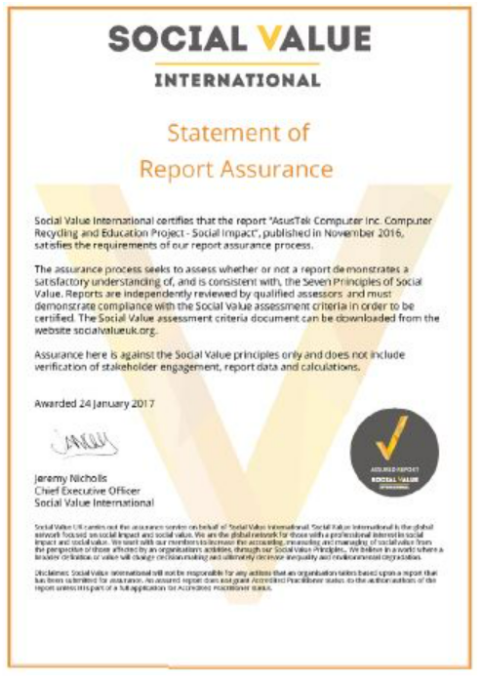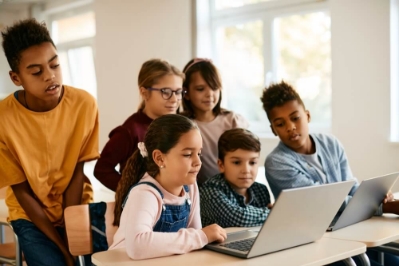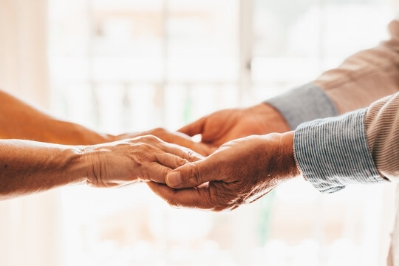Social Investment Strategy | Society | Innovation and Value Creation | ASUS ESG website, ASUS ESG goal
Social Investment Strategy
Digital inclusion, community involvement and environmental protection, are the three main focuses of ASUS for community engagement. Since 2019, ASUS extended the social management spirit of Social Return on Investment (SROI) and adopted the LBG framework to converge and survey the expenditures of social activities to further establish an assessment framework based on the quantitative indicators used to evaluate benefits. The LBG framework was a tool developed by London Benchmarking Group which enables ASUS to adopt a systematic evaluation methdology through the LBG Model such that the benefits of community engagement activities can be more transparent and be ingrained into the corporate strategy. ASUS promise to engage in future social activities that are based on the LBG structure and will apply the SROI method to quantify the social impact if specific initiatives require monetization evidence to determine important decision making.
-
Sponsor 91%
-
Donation 9%
-
Time Devotion < 1%
-
Management Cost < 1%
-
Charity 92.5%
-
Community Investment 5.9%
-
Business Initiative 1.6%



Quantitative Benefit Tracking
- 2,016 refurbished computers
- 1,980 volunteer hrs
*including 312 hours of paid leave for volunteering work - Donated more than 20,000 new and refurbished computers
Qualitative Result Confirmation
- Enhance brand value
- Optimize the quality of life
- Inherit knowledge and culture
Social Return on Investment (SROI)
In the past, enterprises participated in public welfare activity and focused merely on the investment of resources. They omitted the effects or impacts that the charity or CSR projects might bring to the caring ones. Was the expected effect achieved? This ignorance prevented enterprises from evaluating the actual effects and outcomes of an activity, thus they were unable to quantify the information and help optimize the effects and outcomes of their actions.
In order to solve the problem of focusing on very qualitative and subjective regarding sustainable information, in 2016-2017, we took the lead in adopting the Social Return On Investment methodology to evaluate our strategic community investment - Refurbished Computer and Digital Training Program. The concept of SROI is similar to the concept and practice of investment in current financial accounting. Through the unified measurement method and the reporting principles, non-profit activities can also generate information on performance measurement with decision-making and management values.

Each dollar invested generated a social value of 5.7 NTD
ASUS has been investing in the "Refurbished Computer and Digital Training Program" since 2008. The recycle information communications products are refurbished and are donated to the non-profit organizations, and thus establishing a "Sound Material-cycle Society". In order to measure the performance of the program, according to the calculation process and principle in the SROI guide (2009) revised in 2012 by Office of the Third Sector, Cabinet Office, UK, ASUS used a 6-step model to determine the Theory of Change in input, output and result, where currency was used as the measuring unit. The final analysis of the social return on investment of the program showed that each dollar invested generated a social value of 3.61 NTD. The assessment result has been increased from 3.61:1 in 2016 to 5.7:1 in 2019.
In 2017, the "ASUS Social Return on Investment Report of Refurbished Computer and Digital Training Program" was certified by Social Value International, making it the first Asian technology-based corporation and the first in Taiwan to receive such international certification.






